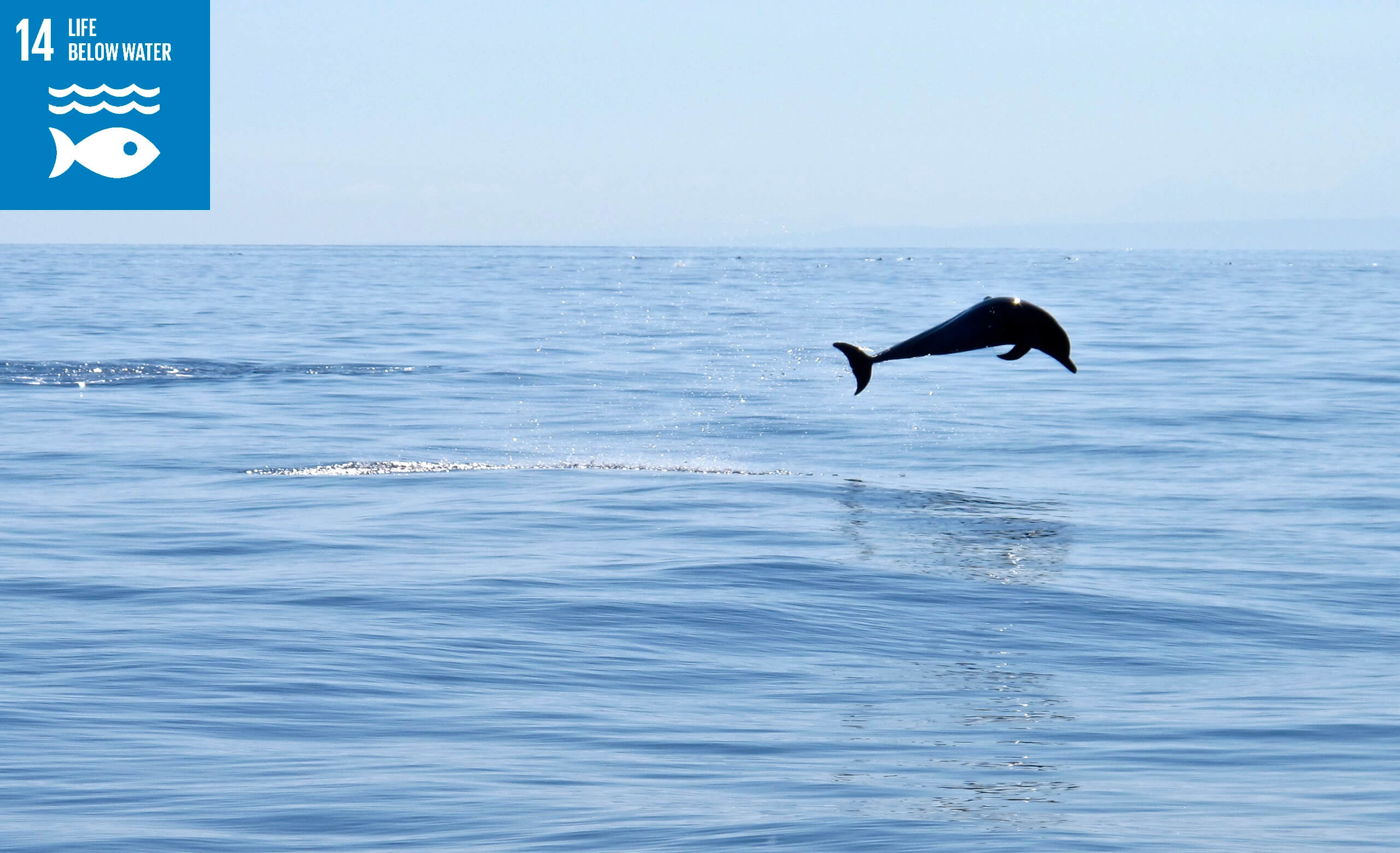
Goal 14: Life Below Water
The world’s oceans – their temperature, chemistry, currents and life – drive global systems that make the Earth habitable for humankind. How we manage this vital resource is essential for humanity as a whole, and to counterbalance the effects of climate change.
Over three billion people depend on marine and coastal biodiversity for their livelihoods. However, today we are seeing 30 percent of the world’s fish stocks overexploited, reaching below the level at which they can produce sustainable yields.
Oceans also absorb about 30 percent of the carbon dioxide produced by humans, and we are seeing a 26 percent rise in ocean acidification since the beginning of the industrial revolution. Marine pollution, an overwhelming majority of which comes from land-based sources, is reaching alarming levels, with an average of 13,000 pieces of plastic litter to be found on every square kilometre of ocean.
The SDGs aim to sustainably manage and protect marine and coastal ecosystems from pollution, as well as address the impacts of ocean acidification. Enhancing conservation and the sustainable use of ocean-based resources through international law will also help mitigate some of the challenges facing our oceans.
Facts and figures
75%
The ocean covers three quarters of the Earth’s surface and represents 99 percent of the living space on the planet by volume.
200,000
The ocean contains nearly 200,000 identified species, but actual numbers may lie in the millions.
40%
As much as 40 percent of the ocean is heavily affected by pollution, depleted fisheries, loss of coastal habitats and other human activities.
30%
The ocean absorbs about 30 percent of carbon dioxide produced by humans, buffering the impacts of global warming.
3 billion
More than 3 billion people depend on marine and coastal biodiversity for their livelihoods.
US$3 trillion
The market value of marine and coastal resources and industries is estimated at US$3 trillion per year, about 5 percent of global GDP.
View Goal Targets
- By 2025, prevent and significantly reduce marine pollution of all kinds, in particular from land-based activities, including marine debris and nutrient pollution
- By 2020, sustainably manage and protect marine and coastal ecosystems to avoid significant adverse impacts, including by strengthening their resilience, and take action for their restoration in order to achieve healthy and productive oceans
- Minimize and address the impacts of ocean acidification, including through enhanced scientific cooperation at all levels
- By 2020, effectively regulate harvesting and end overfishing, illegal, unreported and unregulated fishing and destructive fishing practices and implement science-based management plans, in order to restore fish stocks in the shortest time feasible, at least to levels that can produce maximum sustainable yield as determined by their biological characteristics
- By 2020, conserve at least 10 per cent of coastal and marine areas, consistent with national and international law and based on the best available scientific information
- By 2020, prohibit certain forms of fisheries subsidies which contribute to overcapacity and overfishing, eliminate subsidies that contribute to illegal, unreported and unregulated fishing and refrain from introducing new such subsidies, recognizing that appropriate and effective special and differential treatment for developing and least developed countries should be an integral part of the World Trade Organization fisheries subsidies negotiation
- By 2030, increase the economic benefits to Small Island developing States and least developed countries from the sustainable use of marine resources, including through sustainable management of fisheries, aquaculture and tourism
- Increase scientific knowledge, develop research capacity and transfer marine technology, taking into account the Intergovernmental Oceanographic Commission Criteria and Guidelines on the Transfer of Marine Technology, in order to improve ocean health and to enhance the contribution of marine biodiversity to the development of developing countries, in particular small island developing States and least developed countries
- Provide access for small-scale artisanal fishers to marine resources and markets
- Enhance the conservation and sustainable use of oceans and their resources by implementing international law as reflected in UNCLOS, which provides the legal framework for the conservation and sustainable use of oceans and their resources, as recalled in paragraph 158 of The Future We Want
